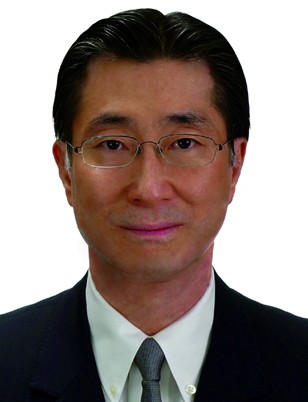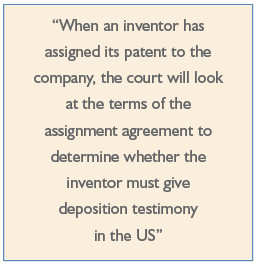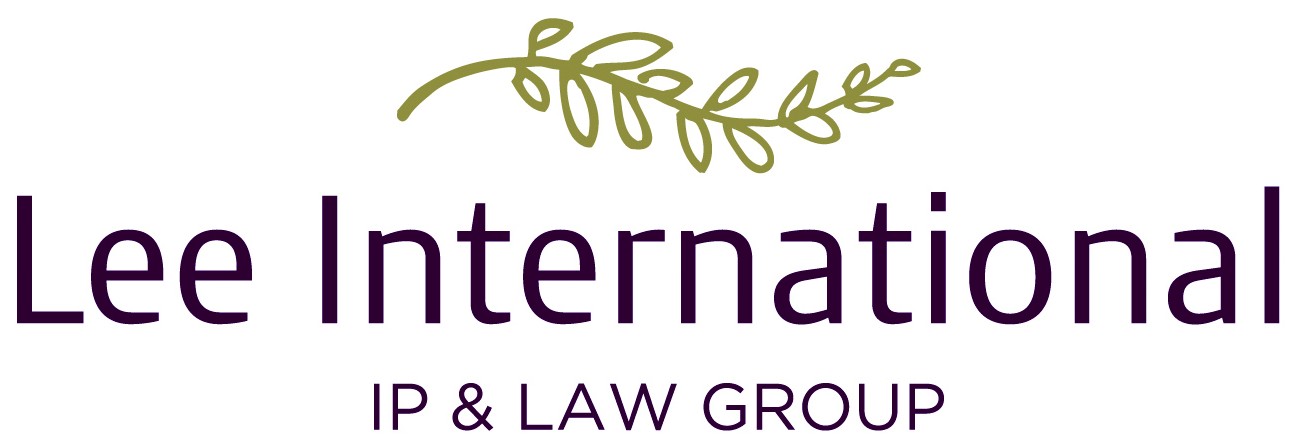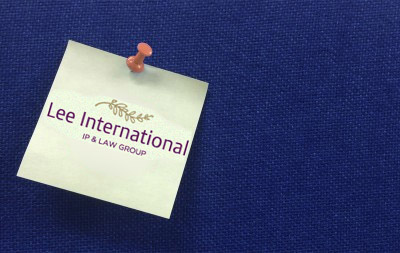By Arthur Dong-Jin Choy, Lee International
Email: djchoy@leeinternational.com
As part of the discovery process in US patent litigation, the party accused of patent infringement will seek the deposition testimony of the inventor (or inventors) of the patents-in-suit. A Korean company that is a party to patent litigation in the US should be aware of the circumstances under which it must ensure the participation of non-party foreign-based inventors of the patents-in-suit in a deposition held in the US forum.
As a first point, if the inventors from whom deposition testimony is sought are current employees of the defendant or plaintiff corporation, the issue is clear-cut and the US Federal Rules of Civil Procedure (FRCP) will apply. Specifically, the party to whom a deposition request is made must make available the inventor for deposition testimony under the FRCP. If the party fails to do so for a reason that is not accepted by the court, then that party will be subject to sanctions under FRCP Rule 37(b)(2)(A). Sanctions may include an adverse inference that the testimony would have supported the requesting party’s position and, in the worst case, a default judgment against the non-complying party.
In general, if the inventor is not a current employee of the party, or not under its “control”, then the requesting party may avail itself of The Hague Evidence Convention to obtain the sought-for evidence or testimony in the country in which the inventor resides.
 However, when an inventor has assigned its patent to the company, the court will look at the terms of the assignment agreement to determine whether the inventor must give deposition testimony in the US.
However, when an inventor has assigned its patent to the company, the court will look at the terms of the assignment agreement to determine whether the inventor must give deposition testimony in the US.
For instance, in Amgen, Inc, v Ariad Pharms Inc, Civil Action No. 06-259-MPT (District of Delaware, May 14, 2007), three individuals had assigned the patent of which they were co-inventors to the defendant, Ariad Pharmaceuticals. These inventors were not “employees, officers, directors or managing agents of the defendant”, and therefore not under the control of the defendant. The inventors, however, had signed an assignment agreement regarding the patent-in-suit that obligated them to give testimony “in any interference or other proceeding” in which the patent may be involved for purposes of “secur[ing]” it. The court concluded that “secure” included the word “defend”, and the reference to “other proceeding” was broad enough to include litigation. The inventors were therefore obligated to appear in the US to provide deposition testimony.
Other examples of language in an assignment agreement that will obligate an inventor to give US deposition testimony is as follows: “to testify in any judicial or administrative proceeding and generally to do everything possible to aid [the assigned] to obtain and enforce said letters Patent in the United States when requested to do so by [assigned]”. See Aerocrine AB and Aerocrine Inc, v Apieron Inc, Civ. No. 08-787-LPS, at 108 (District of Delaware, 2010).
It must be noted that if there is no such language as referred to above in the assignment that may be interpreted as obligating the inventor-assignor to give testimony in an enforcement proceeding, then regardless of whether the inventor is a co-founder, a shareholder, a former president and/or a former board member of the assignee-company, under current case law in the US, the inventor will not be obligated to travel to the US to give deposition testimony. See Aerocrine.
Many large Korean corporations will have a well-articulated procedure for the assignment by the inventor-employee of his invention to the company. These companies should be aware that the language by which that assignment is carried out will be a point of inquiry of district courts when determining the company’s obligation to make available the relevant inventors for deposition testimony in the US.

http//: www.leeinternational.com
Email: djchoy@leeinternational.com
Tel: 82 2 2262 6288
Fax: 82 2 2279 5020


